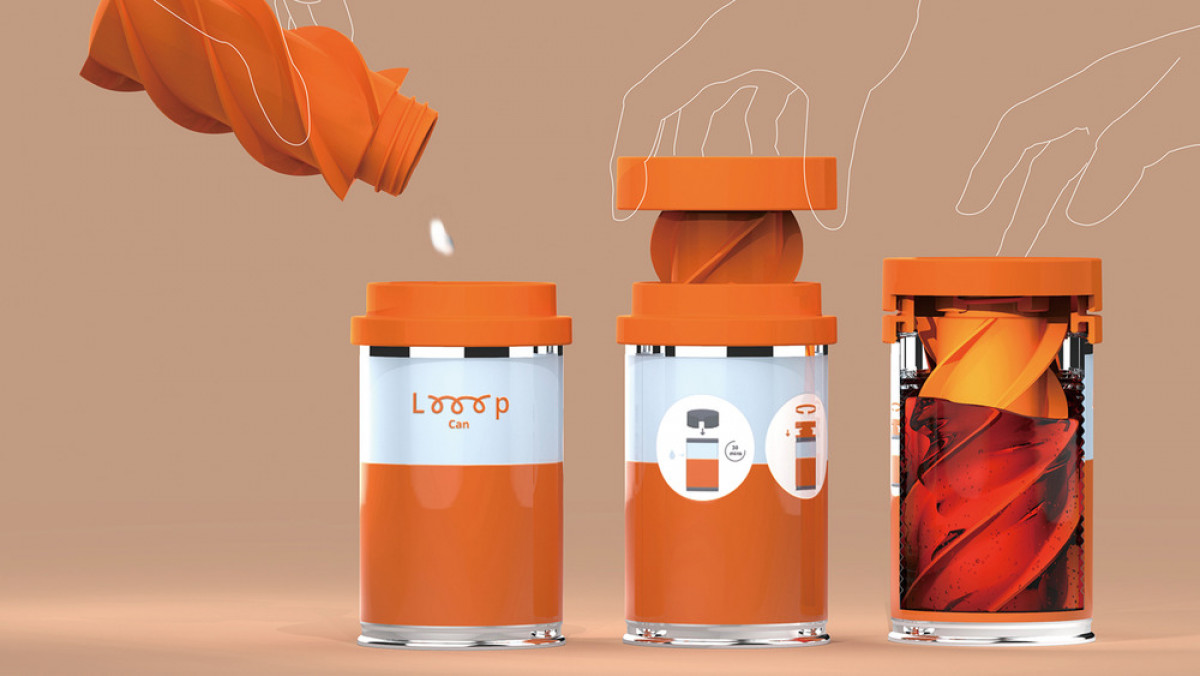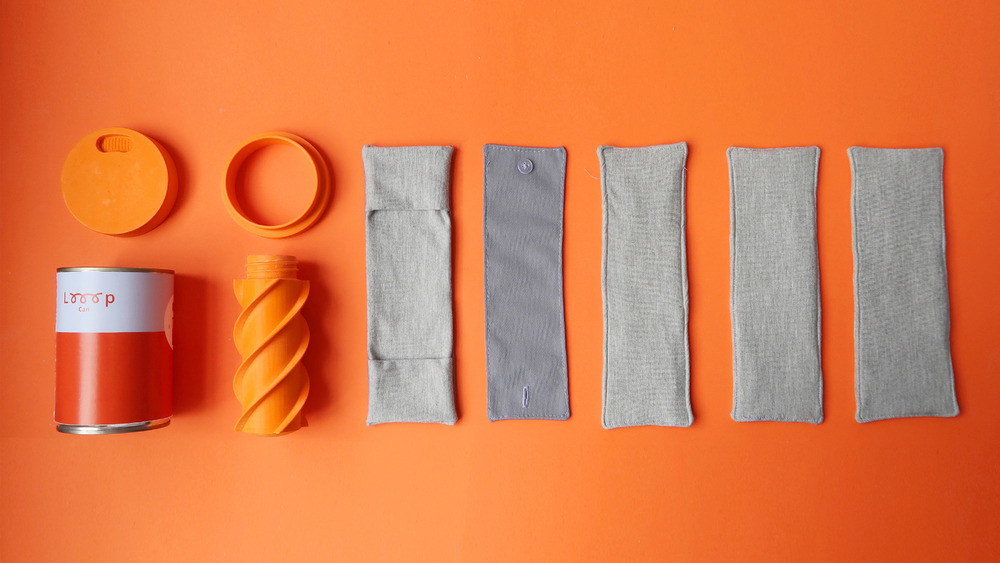20 Jun 2022

Waveee Design is pleased to announce that Looop is the Gold Prize winner for the Design Educates Award 2022 in the category of Product Design!
Looop is a cleaning kit for washing reusable menstruation pads for reducing period poverty for menstruators. Such as refugees in water-scarcity regions, asylum seekers in financial difficulties, or people who want to menstruate in a sustainable way. Using buoyancy Force to reduce water required for washing. With injection modelling, the total cost is around £3 for the whole set including the Recycled PP-made washing parts and pads. Expects to have a 5 years lifespan which covers the minimum time that a refugee stays in the camp waiting for identity approval.
“Looop is a good example of the level of quality and passion, our nominees are contributing to a more sustainable future.” Nils Bader, Director Green Product Award

Inspiration & Aim of Looop
Looop Can is Cheuk Laam's final year product design project that came across from September 2020 to March 2021 in Central Saint Martins. At that time, She just heard the news about a fire destroying Moria Camp that left 130,000 people without shelter in Greece. This is the largest refugee camp on Lesvos Island and people overflow to Kara Tepe Refugee Camp which enhances the resource shortage condition there. With the rapid climate changes, at least 26 million people are forced to flee away with a fear of being involved in war owing to resource scarcity.
The refugee crisis is one of the gravest humanitarian disasters and women suffer more vulnerabilities in this insecure journey such as widespread gender-based violence in the camp. Especially period poverty is overlooked in refugee camps owing to the lack of data collection about menstrual health. This affects their ability to move freely and access opportunities such as education or fetching water and food resources. Plus menstruators change pads in their shelter though there is no privacy rather than in a shared toilet as it is dirty and unsafe.
They need to have privacy, safety, security space, and access to water and soap to clean. The minority of them who did not struggle had either finished their period or consistently relied on charities for period products. Asylum-seeking menstruators are another marginalised group in terms of access to period products. For example, as the lack of economic power, people are not able to get extra free pads from the charity when they don’t have travel money or have to get antibiotics when they get an infection from wearing pads for too long.
Capturing the purpose of Looop Can is to guarantee women’s spatial mobility with dignity and fundamental human rights particularly: (1) the right to water and sanitation, (2) the right to health, and (3) the right to non-discrimination including no barriers to receiving education. Hence, Looop Can is an affordable cleaning kit for washing reusable menstruation pads for reducing period poverty in water-scarcity regions. Knowing almost 60% of female refugees suffer period poverty problems as they rather spend financial support on food or baby diapers.
Most of them come from strictly religious countries that see inserting tampons as taboo. This inspires her to design a product that can protect fundamental human rights to water, sanitation, and health for menstruators from 12 to 24 years old, who suffer language and culture barriers and have limited financial ability. At first, Cheuk Laam studied elements like a yoyo, pseudosphere, perpetual motion, gyroscope, and centripetal acceleration. Then she found out that buoyant force will reduce water usage depending on the size of an object immersed in liquid.
This inspiration actually comes from observing how her British flatmates soaked their tea-stained cups. Seeing them overlay a cup on another cup for soaking the inner wall with less water. Washing paddle alteration and tin can adaption are suggestions from her beloved tutor KC and Mike.
About the pad design, through researching the material used in reusable pads that are less likely to cause skin allergies. Cheuk Laam designed the pad to have separable layers so that they dry quicker regardless of the weather. The quick-drying bamboo fabric became an ideal option as it takes half a day to dry indoors and keeps the temperature for wintertime and cooling for summertime. A rectangular-shaped design reduces fabric off the cut waste and is less like menstrual-related products from a distance reducing gender stigma in refugee camps. The Pad can be made by volunteers and distributed to refugees. Or it can be an opportunity to bring financial security to refugee women by paying livable wages for pad manufacturing.
Technical sheet